Spring budget 2021: predictions and major talking points
What will Rishi Sunak include in his budget speech on Wednesday?
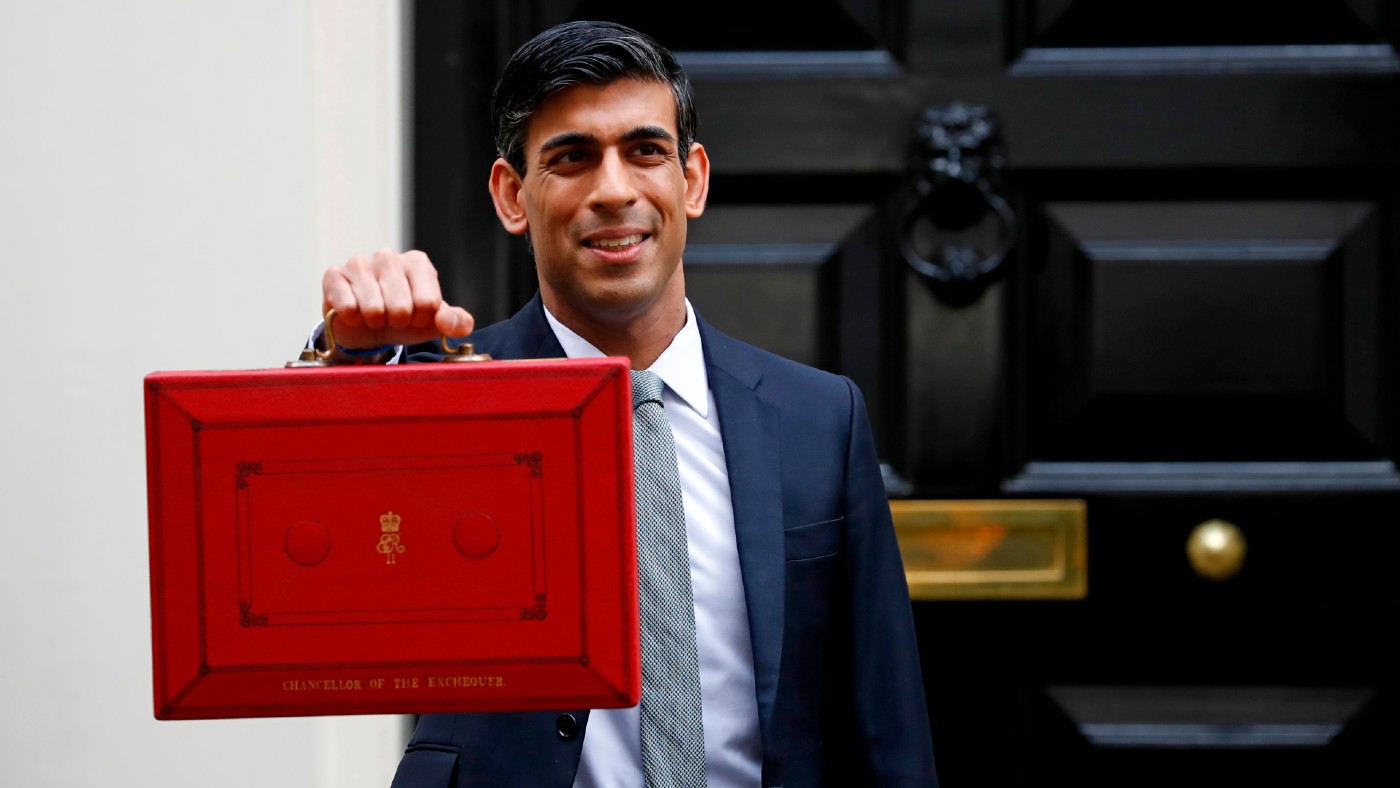
A free daily email with the biggest news stories of the day – and the best features from TheWeek.com
You are now subscribed
Your newsletter sign-up was successful
Rishi Sunak has warned of the need to restore the public finances after the “enormous toll” taken by the pandemic on the UK’s economy.
Speaking on Sky News’s Sophy Ridge On Sunday programme, the chancellor said ahead of his budget speech that “there is more to come” on Covid-19 support and it “aligns” with the roadmap out of lockdown announced by Boris Johnson last week.
The Treasury has already confirmed that the budget would “set out the next phase of the plan to tackle the virus and protect jobs” and the BBC says it will be “very closely watched” because of the “massive economic effects” of the coronavirus.
The Week
Escape your echo chamber. Get the facts behind the news, plus analysis from multiple perspectives.

Sign up for The Week's Free Newsletters
From our morning news briefing to a weekly Good News Newsletter, get the best of The Week delivered directly to your inbox.
From our morning news briefing to a weekly Good News Newsletter, get the best of The Week delivered directly to your inbox.
There are a “mind-boggling array of problems” that Sunak must deal with, The Telegraph reported. Here we pick out some of the predictions and major talking points ahead of the spring budget speech on Wednesday.
Sunak hints at furlough extension
The Treasury confirmed in December that the Coronavirus Job Retention Scheme would continue to the end of April and in his interview with Sky News, Sunak “heavily hinted” at a further extension.
“I said at the beginning of this crisis that I would do whatever it took to protect people, families and businesses through this crisis and I remain completely committed to that,” he told Ridge.
A free daily email with the biggest news stories of the day – and the best features from TheWeek.com
“The prime minister in the road map set out a path for us to recover and reopen and I want to support people and businesses along that path… I want to make sure people realise that we are going to be there to support them and if you look at our track record, we went big, we went early and there is more to come.”
Due to end on 30 April, the furlough scheme has cost almost £50bn to date and kept nine million people in work at its peak last May. Should it be extended, the move would save “millions of jobs across the UK”, the Daily Mirror says.
The budget will be “dominated by continued emergency support”, the FT adds. “This means Sunak will leave some big decisions until a second November budget.”
‘Red wall’ Tory MPs urge cut in business rates
Sunak is under “increasing pressure” from Conservative “red wall” MPs to cut taxes for thousands of retailers, says The Guardian. The 45 Tory MPs from constituencies in the north of England have urged the chancellor to cut business rates in England from 50% of market rent to 35% to help “save the High Streets”, the BBC reports.
In a letter to the chancellor, the MPs from the Northern Research Group wrote: “With many of our town centres hit particularly hard by the Covid-19 pandemic, now is the time for a bold move to reduce business rates nationally. We need to make sure that once people can go shopping again, they have high streets to go back to.”
On Sunday, the government announced a £5bn grant scheme to help shops and hospitality venues reopen.
Sunak will give “700,000 shops, pubs, clubs, hotels, restaurants, gyms and hair salons up to £18,000 each to kickstart businesses after the Covid shutdown”, the Daily Mirror reports. “The extra cash will ensure our high street can open their doors with optimism,” Sunak said.
Repaying the Covid debts
While hinting that schemes such as furlough would be extended, Sunak also warned that he must “level” with the public over the pandemic’s rising costs, The Sunday Times reports.
Sunak said: “We do have a challenge in our public finances and if we don’t do anything, borrowing will continue to be at very high levels - even after we’ve recovered from Covid, debt will continue to rise indefinitely and that’s not a good situation.”
In the wake of the coronavirus crisis, debt has increased to more than £2trn, “representing nearly 100% of GDP, the highest level since the 1960s”, Sky News reports. Latest figures reveal that government borrowing for this financial year has reached £270.8bn - this is £212.7bn more than a year ago, according to the Office for National Statistics.
The chancellor is facing a “day of reckoning”, The Telegraph says, as his budget aims to resolve the “debt dilemma”. The paper adds that restoring the public finances without “choking off recovery” from the pandemic will “demand a carefully crafted balancing act”.
Even though the Covid debt has spiralled, Deloitte chief economist Ian Stewart believes that the focus of this budget should be on growth. “The heavy lifting needed to rebuild the public finances will need to wait until the recovery is well entrenched,” he said.
‘Stealth’ rise in income tax
After saying it was time to “level with people” about the problems facing the economy, Sunak “laid the ground for tax rises”, The Sunday Times reports. The chancellor will set out plans to raise income tax by £6bn by outlining a “pathway” to finding an extra £43bn a year to plug a “black hole in the nation’s finances”. He will also “outline plans to raise corporation tax from 19p in the pound to 25p by the end of the parliament”.
Experts have warned that thousands of people in “middle Britain” could be “stealthily dragged” into paying more tax, the Daily Mail says. It’s claimed that Sunak is “planning a raid on wealthy pensioners” in this week’s budget by freezing the lifetime allowance on pensions and freezing the higher rate of income tax at £50,000.
Backbench and cabinet Tories warn that the “desire for fiscal responsibility should not equate to major tax hikes”, The Telegraph reports. Meanwhile, Shadow Chancellor Anneliese Dodds told the Sunday Mirror that “now is not the time” for big tax rises.
Wealth tax and stamp duty
Accountancy and business advisory firm BDO says that while the corporation tax rise “might not seem very supportive of struggling businesses”, a limited raise in rates for larger companies that have fared well during the pandemic is “possible”.
The introduction of a wealth tax has also been in the headlines recently, says The Times. “This could include a one-off wealth tax, an online sales tax or the creation of a ‘capital values tax’ to replace business rates that would be paid by the owner of a property, rather than the business leasing it.”
Sunak has “many competing demands”, says the Eastern Daily Press, but nevertheless “one of the most important decisions he has to take is on the thorny question of stamp duty land tax”.
The current stamp duty holiday is due to end on 31 March, but reports suggest that the chancellor is considering an extension to the tax break.
Sunak risks delivering a “sledgehammer blow” to the housing market if the stamp duty holiday ends this month as planned, the Daily Express reports. And the Centre for Policy Studies is urging the chancellor to keep the tax break in place and avoid a slump in the market it claims would “jeopardise the recovery and deepen the housing crisis”.
Mike Starling is the former digital features editor at The Week. He started his career in 2001 in Gloucestershire as a sports reporter and sub-editor and has held various roles as a writer and editor at news, travel and B2B publications. He has spoken at a number of sports business conferences and also worked as a consultant creating sports travel content for tourism boards. International experience includes spells living and working in Dubai, UAE; Brisbane, Australia; and Beirut, Lebanon.
-
 How to Get to Heaven from Belfast: a ‘highly entertaining ride’
How to Get to Heaven from Belfast: a ‘highly entertaining ride’The Week Recommends Mystery-comedy from the creator of Derry Girls should be ‘your new binge-watch’
-
 The 8 best TV shows of the 1960s
The 8 best TV shows of the 1960sThe standout shows of this decade take viewers from outer space to the Wild West
-
 Microdramas are booming
Microdramas are boomingUnder the radar Scroll to watch a whole movie
-
 Is the UK headed for recession?
Is the UK headed for recession?Today’s Big Question Sluggish growth and rising unemployment are ringing alarm bells for economists
-
 Should Labour break manifesto pledge and raise taxes?
Should Labour break manifesto pledge and raise taxes?Today's Big Question There are ‘powerful’ fiscal arguments for an income tax rise but it could mean ‘game over’ for the government
-
 Will Rachel Reeves have to raise taxes again?
Will Rachel Reeves have to raise taxes again?Today's Big Question Rising gilt yields and higher debt interest sound warning that Chancellor may miss her Budget borrowing targets
-
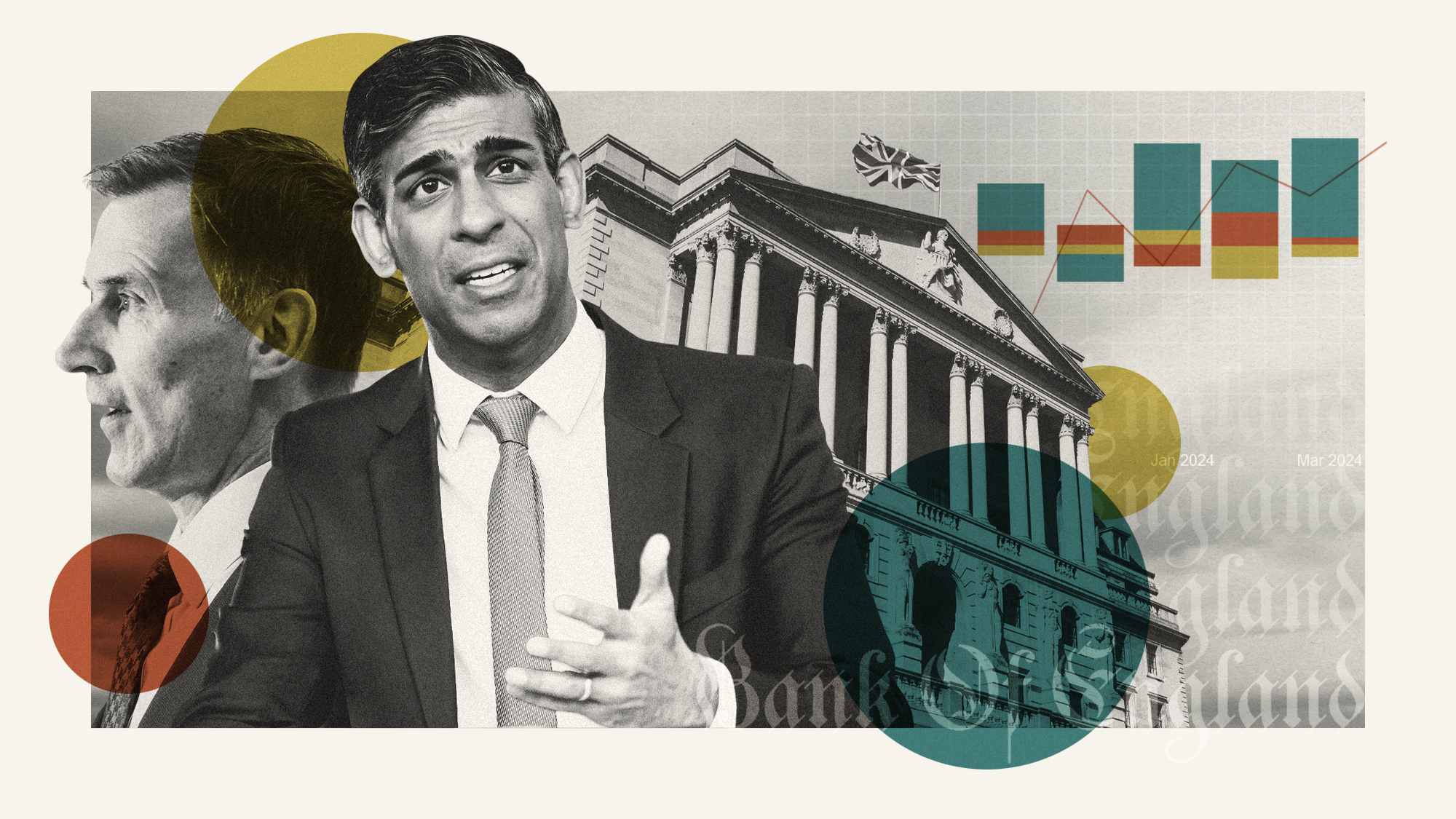 Is the UK economy returning to normal?
Is the UK economy returning to normal?Today's Big Question Tories claim UK has 'turned a corner' while Labour accuses government of 'gaslighting' public
-
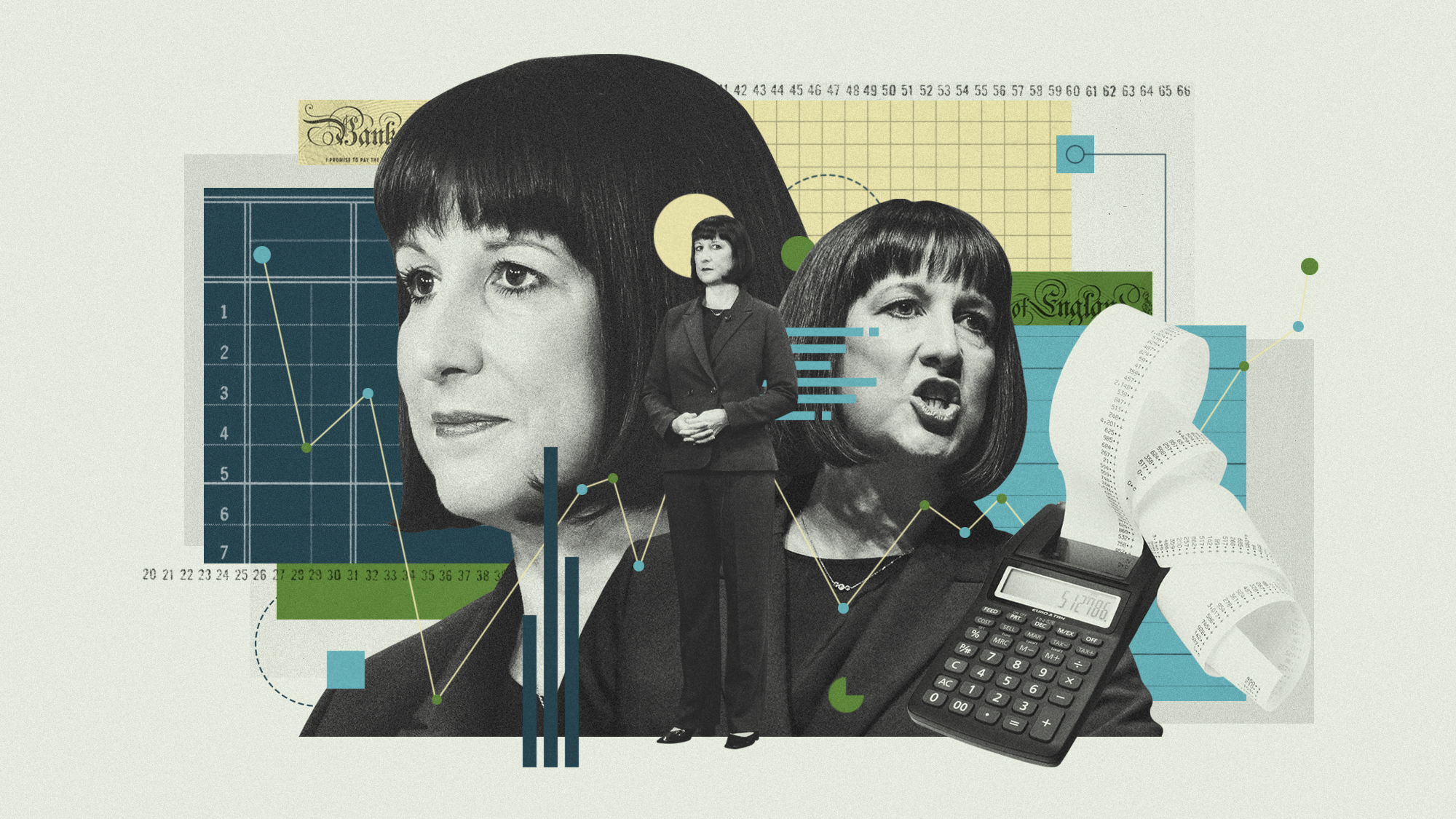 Securonomics: what is Rachel Reeves' economic plan and will it work?
Securonomics: what is Rachel Reeves' economic plan and will it work?The Explainer Focus on economic security and the resilience of industry in an uncertain world is 'key to growth', say Labour
-
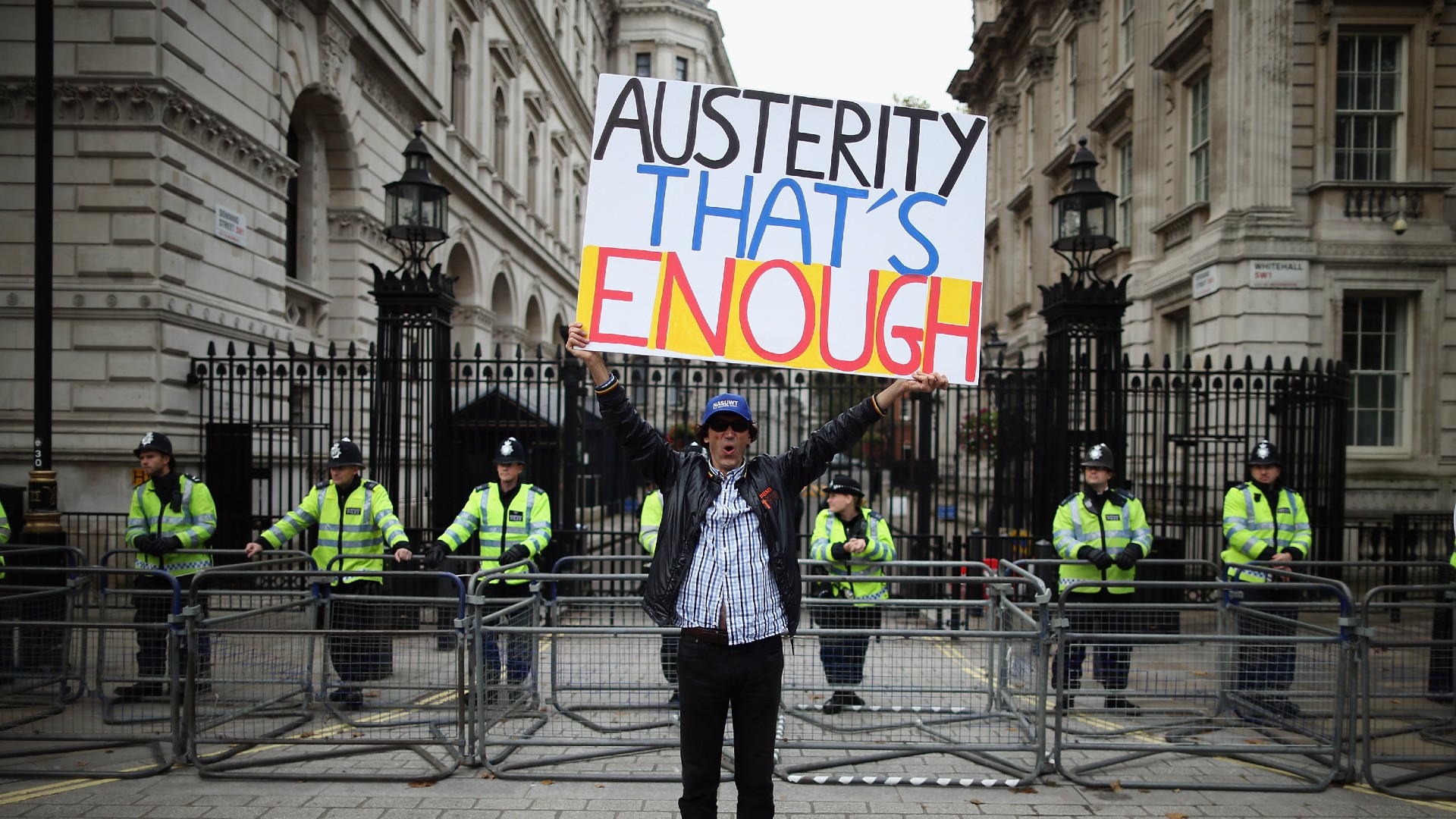 New austerity: can public services take any more cuts?
New austerity: can public services take any more cuts?Today's Big Question Some government departments already 'in last chance saloon', say unions, as Conservative tax-cutting plans 'hang in the balance'
-
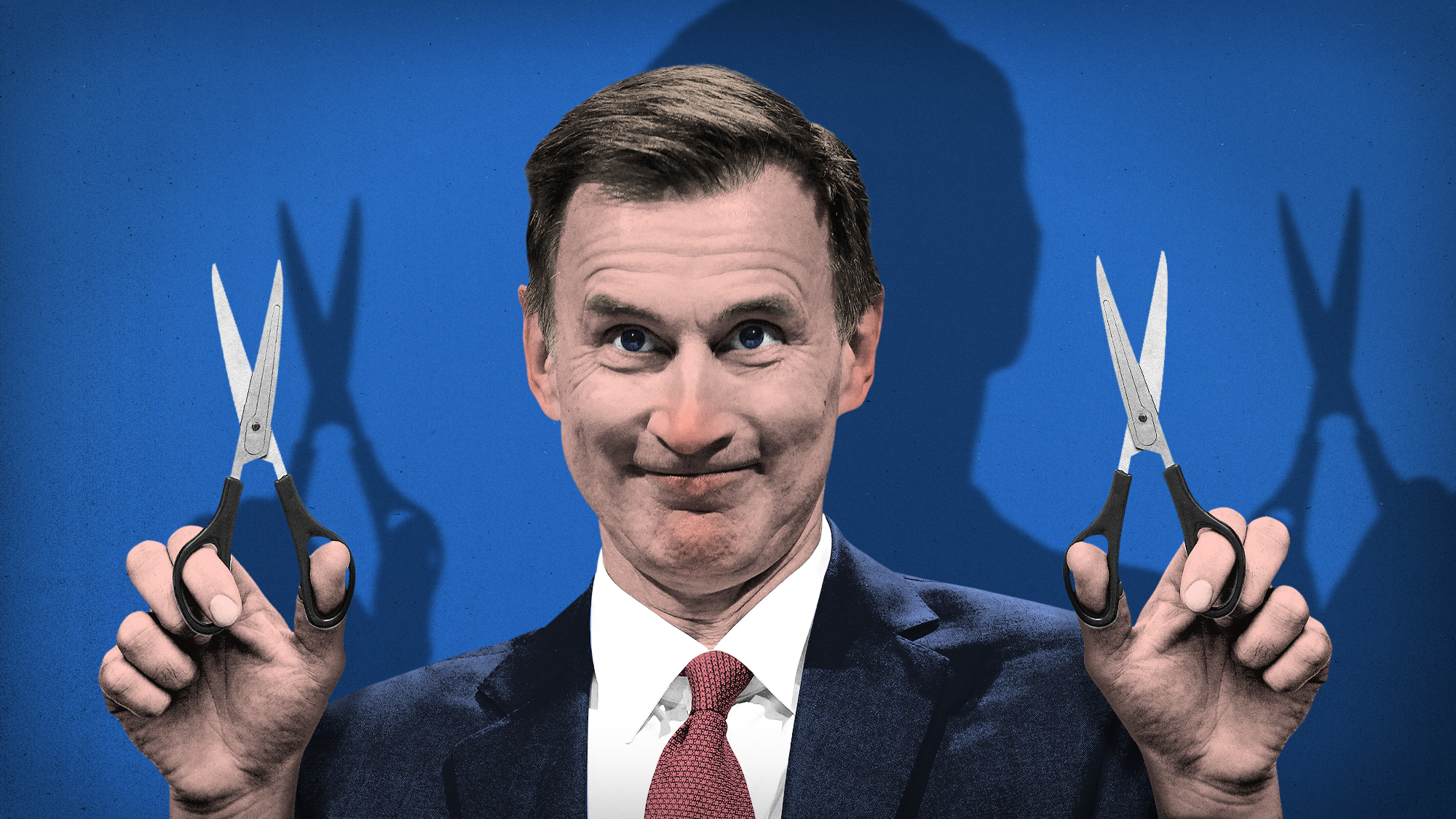 Five key takeaways from Jeremy Hunt's Autumn Statement
Five key takeaways from Jeremy Hunt's Autumn StatementThe Explainer Benefits rise with higher inflation figure, pension triple lock maintained and National Insurance cut
-
 Would tax cuts benefit the UK economy?
Would tax cuts benefit the UK economy?Today's Big Question More money in people's pockets may help the Tories politically, but could harm efforts to keep inflation falling